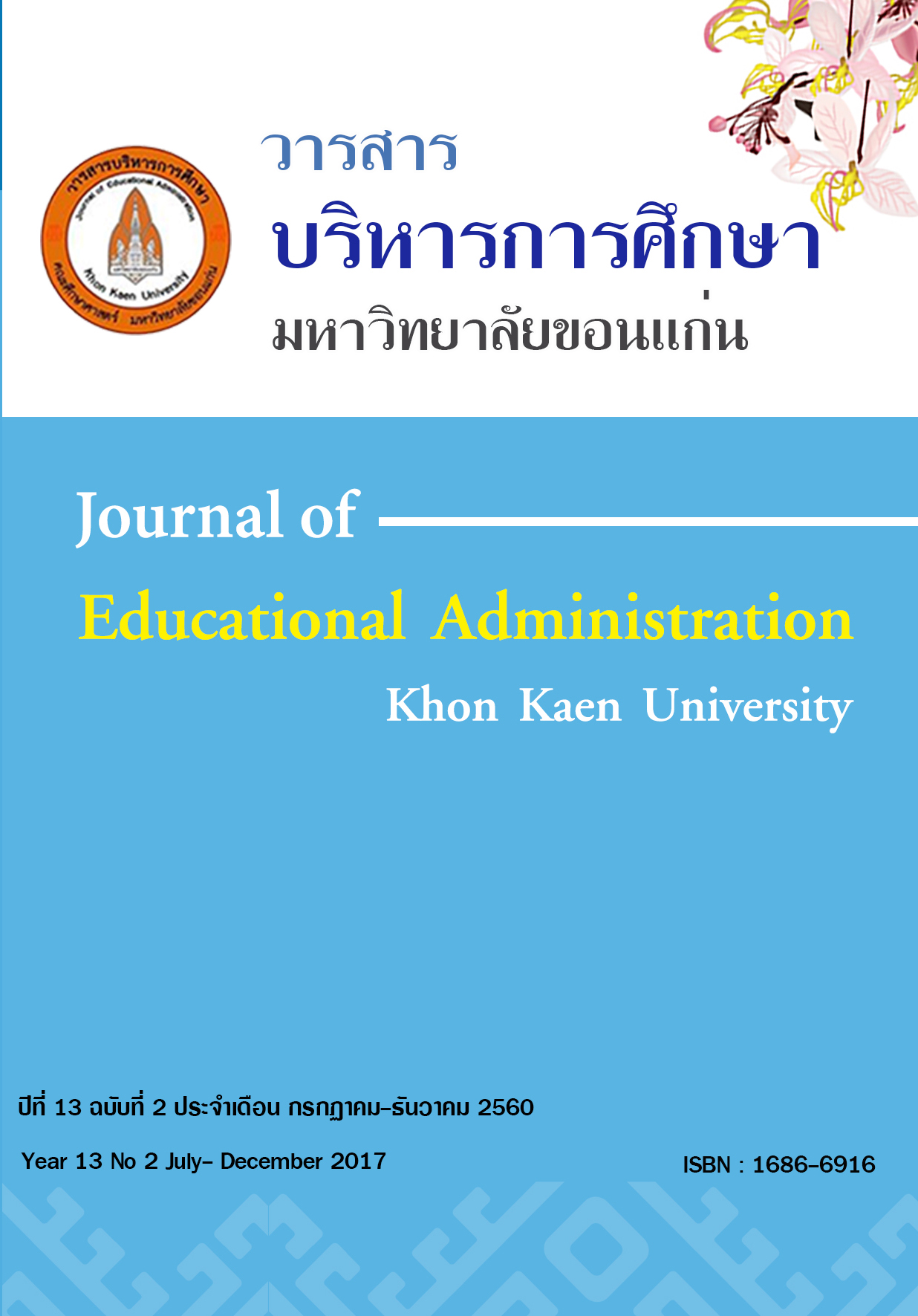THE DEVELOPMENT OF THE INSTRUCTIONAL SUPERVISION MODEL IN SMALL SCHOOLS BY THE REFLECTIVE COACHING SUPERVISION
Main Article Content
Abstract
This study was conducted under four purposes. First, it was to study states of current problems and an expectation of the instructional supervision in small schools. Second, it was to create and develop the instructional supervision model by the reflective coaching supervision (RCS). Third, it was to study the experiment result of the instructional supervision model by the reflective coaching supervision. Finally, it was to evaluate the instructional supervision model by the reflective coaching supervision. The researcher used research and development (R&D) as the research method in this study which included the research processes and the internal development of the instructional supervision model by the reflective coaching supervision (RCS) in four phases. The first process is to study of the states of current problems. The second process is to create and develop the instructional supervision model. The third process is to use the instructional supervision model in small schools by the reflective coaching supervision. Regarding to planning and performance of school administrators, teachers, educational supervisions, researcher, and research assistants organized workshops at two target schools. The participants consisted of 19 teachers, 2 school administrators, researcher, assistant researchers from the Faculty of Management Sciences, and team work with 35 participants in total. The researcher used the instructional supervision model in 6 processes of Hariris (1985). The forth process is to evaluate the instructional supervision model in small schools with the reflective coaching supervision by classroom observation and interviews along with three phases of performance processes including follow-up study of the observation result, reflection, and after action review (AAR) which were reflected to get the result after the reflection.
The result of the research found that the participants at the workshops in the target schools were able to instruct, reflect, and analyze the states of work which were required to develop or change according to the set goal in order to improve the educational achievement of learners. According to the interviews of school administrators and teachers, they were satisfied with the workshops and the instructional supervision in all activities. The results could be divided into three aspects. First, for the personnel aspect, it found that the knowledge from the instructional supervision could change the behaviors of instructional management, and they could analyze the problems caused by the instructional management and find ways to solve its problems consistently. For the instructional management process, the teachers should prepare documents, mediums, and tools and use mediums in the instruction. The third aspect is techniques. The teacher should present knowledge to learners first and let them perform it later. According to the management, the teachers should have plan and calendar in working. Also, it can be changed later in accordance with the real situations which may happen. From the real performance, they had knowledge and experience. Importantly, they had knowledge about “the Instructional Supervision Model in Small-Sized Schools by Reflective Coaching Supervision”.

